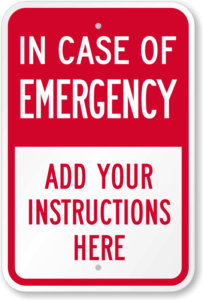
It's a horrible thought but, if a terrible disaster struck your organisation, would you know how to respond?
As a devastating fire tore through a building that has witnessed 850 years of history we were once again reminded that disasters don’t discriminate. No building, regardless of age or significance, is immune.
In museums, archives and historic buildings around the world I suspect the events of this week have prompted people to review insurance documents and salvage plans to ensure staff know exactly what to do should a disaster strike.
But how many fundraisers have been inspired to review (or write!) their own plans?
“When I was a boy and I would see scary things in the news, my mother would say to me, ‘Look for the helpers. You will always find people who are helping.” – Fred Rogers
In the face of a disaster it is human nature to want to help. Within 24 hours of the Notre Dame Cathedral catching fire, offers of donations have poured in from all over the world. These donations range from a few pounds to gifts of £100m+.
This isn’t the first time people have turned to philanthropy in the face of adversity. Following fires at Battersea Arts Centre and the Mackintosh building at Glasgow School of Art, individuals and organisations were quick to come forward and give their support.
As a fundraiser you are likely to have a big role to play should a disaster occur. Would you be prepared should the worst ever happen at your organisation?
You might think that it’s impossible to plan your response until you know what has actually happened. However, there are things you can prepare for, plan and decide now that will make your job easier in the event of an emergency.
Below, we have set out some of the things you should consider when writing an Emergency Fundraising Plan. For once, this is one fundraising plan we hope you will never have to follow. However, should the unthinkable happen, we hope that encouraging you to make a plan today will save you valuable time put you on the front foot should tragedy strike.
1) What do you actually need donations for?
A common question in response to crisis appeals of this nature is “why do you need people to give? Won’t the insurance cover this?”. This is a fair question and one you need to be able to answer before launching an emergency appeal.
Rather than wait until you are in the middle of an emergency, use this time to get an idea of what would be covered by the insurance and what are the possible costs your organisation would have to cover.
- Will the payout from the insurance enable you to do everything you need to do, or will additional funds be required?
- Are there things your insurance doesn’t cover?
- What immediate costs will there be, such as emergency conservation and storage?
- What significant costs are likely to be incurred long before any insurance payout?

2) What is the process for triggering the plan? Who is responsible for delivering it?
When it comes to launching an emergency appeal, the lesson from Battersea Arts Centre and Notre Dame is that you have to act quickly. If you spend too long dragging your heels other people will step in to fill the void. At the same time, you don’t want to launch the campaign too quickly and then have to backtrack when you find the “crisis” isn’t as bad as you first thought.
- Who is responsible for triggering the launch of your Emergency Fundraising Plan?
- What are the criteria for launching an appeal?
- Who will be responsible for ensuring the plan is delivered as agreed?
3) Where will you direct people who want to make donations?
Within 24 hours of the Notre Dame fire starting over 50 crowdfunding pages had been set up on GoFundMe alone. While most will be genuine appeals set up by people trying to help, there is always the risk of fraudsters using this opportunity to take advantage of peoples’ desire to help.
In an ideal world you want as many people as possible to donate to you directly, rather than through third-party campaigns. This is because this enables you to control the messaging and you can be sure that donations go to the right place (without any risk of others withholding donations or imposing unwanted restrictions). It also means you can build the relationship with supporters directly, thanking them for their support and keeping them engaged as you work to repair the damage.
In planning your Emergency Fundraising Plan you need to consider:
- Who will set up the campaign page?
- How will you ensure the donation page goes live as quickly as possible?
- Are there things you can put in place now to save you time in future? For example, can you create a template for the donation page?
- Who will ensure the donation page is on the homepage of your website and shared via social media?
- How will you ensure the donation page link is promoted as the official place for people looking to make donations?
4) How will you communicate with those closest to you?
When things go wrong people can become desperate for updates on the situation. If disaster strikes at your organisation, the people who care most about you (including your supporters) will want to know what is happening.
As a fundraiser you need to keep them updated on what is happening and what you are doing in response. To help you do this you need to consider:
- What is the process for signing off messaging? Who needs to be involved? Who has final say on what information can be shared with the public?
- How will you contact those closest to you if you can’t access your office and/or your database? What steps do you need to take now to ensure you can access the email addresses of your supporters (and the telephone numbers for your major donors)?
- How will your supporters communicate with you if you can’t access your office, email and/or work phone?

5) Do you understand the salvage and rescue procedure?
As we’ve mentioned above, you are going to want to keep your supporters updated. However, those working to combat the emergency are unlikely to want to stop work to give you updates.
Most museums, archives and historic buildings will have a salvage and recovery plan which sets out exactly what to do in response to different types of emergency. Familiarising yourself with these plans (and knowing how to access them in an emergency) will enable you to keep supporters updated without interfering with the salvage and recovery efforts.
The plans will also give you an idea of any initial costs that might be incurred, helping you to answer Question 1.
6) Where will your team be based?
It might seem like a small thing, but you need to think about where your team will be based if you can’t get into your office. Having everyone in one place will make it easier to co-ordinate your activity in a fast-changing situation.

- Where can you all gather that is close enough to the situation for you to get updates, but far enough away that you are not putting yourselves in danger?
- Where can you get access to WiFi, power supplies, phones etc?
- Where can you base yourself if a crisis happens during the night, when traditional spaces such as cafes or restaurants might be closed?
- How will your team communicate with each other if you can’t all be in the same place at the same time?
7) What partnerships will help you to get the word out?
One of the great successes of the Battersea Arts Centre appeal was their ability to build partnerships with local companies who could both offer support and help them to promote the appeal. One such partnership was with South West Trains, who ensured that messages were played on their trains as they went past the scene of the fire. This timely message meant that people who could see firsthand the damage caused by the fire were also given the opportunity to help do something about it.
- What partnerships could offer practical help for dealing with the emergency? (For example, do you need somewhere nearby to store salvaged items?)
- What partnerships could help you to promote the appeal to people who would care and be most likely to donate?
- Who will be responsible for seeking these partnerships?
